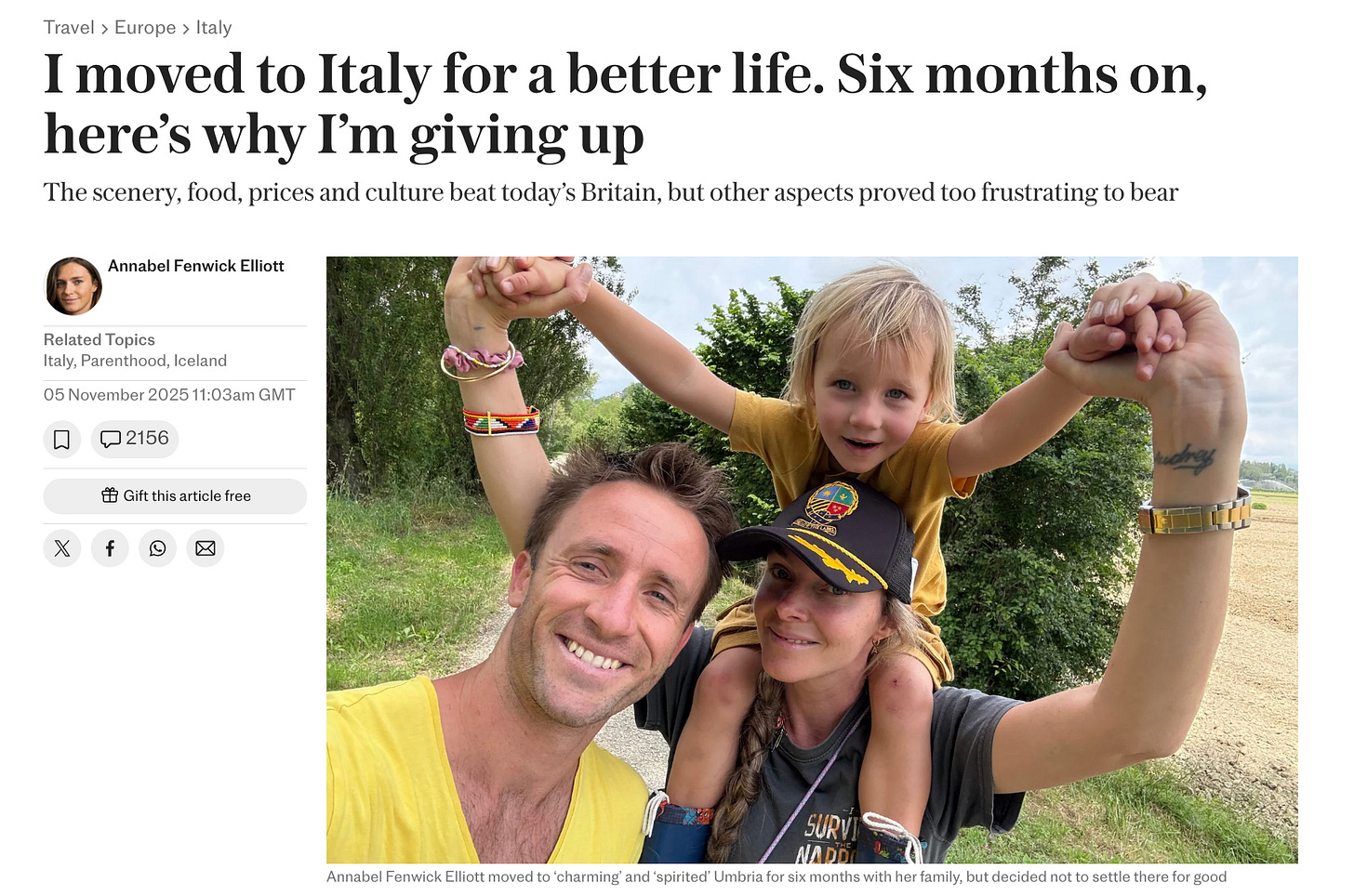Italy isn’t betraying expectations. It’s the expectations that aren’t fully honest.
Non è l’Italia a tradire le aspettative. Sono le aspettative a non dire tutta la verità.
Una famiglia britannica lascia l’Umbria dopo sei mesi. Non è un fallimento italiano: è una storia di aspettative non allineate e poco sincere con sé stesse.
Sul Telegraph del 5 novembre ho letto — segnalato da Francesco Ragni — il racconto di una famiglia britannica che, dopo sei mesi in Umbria, decide di lasciare l’Italia. Una decisione comprensibile, legittima, umana…


